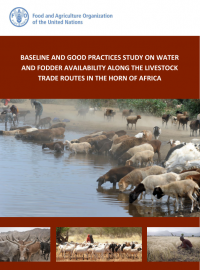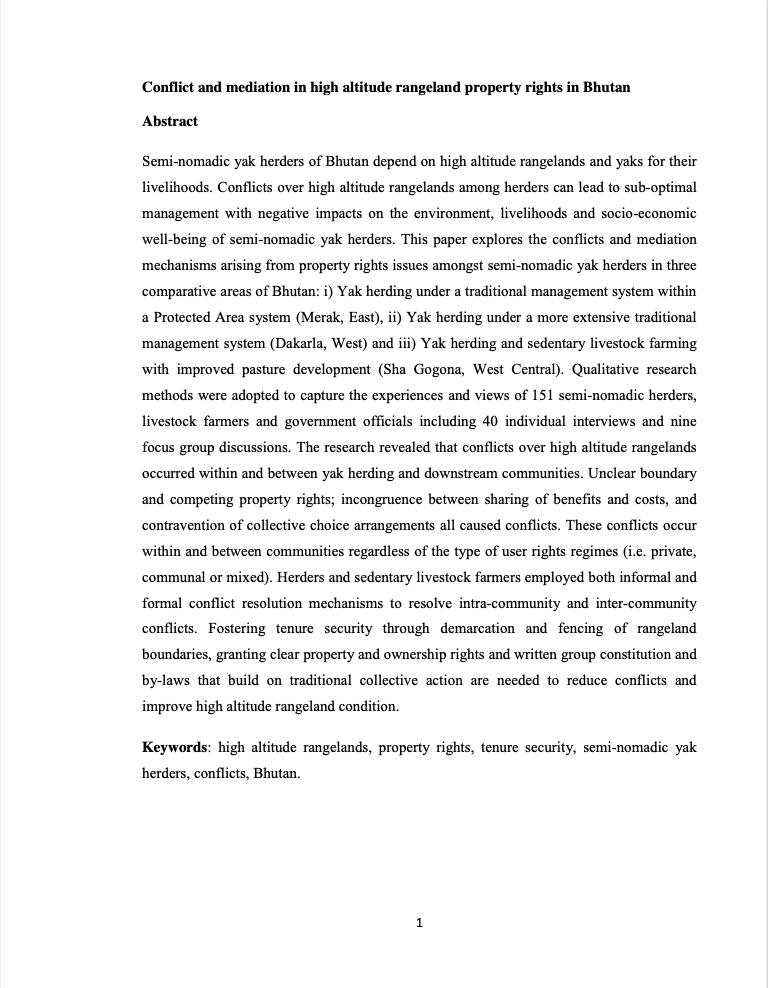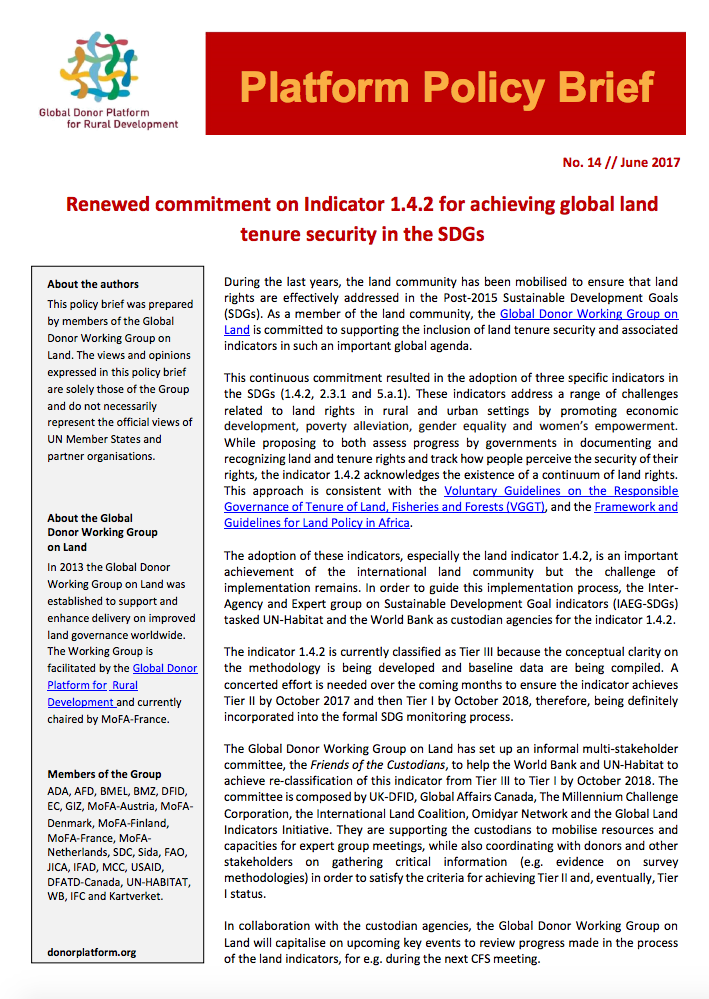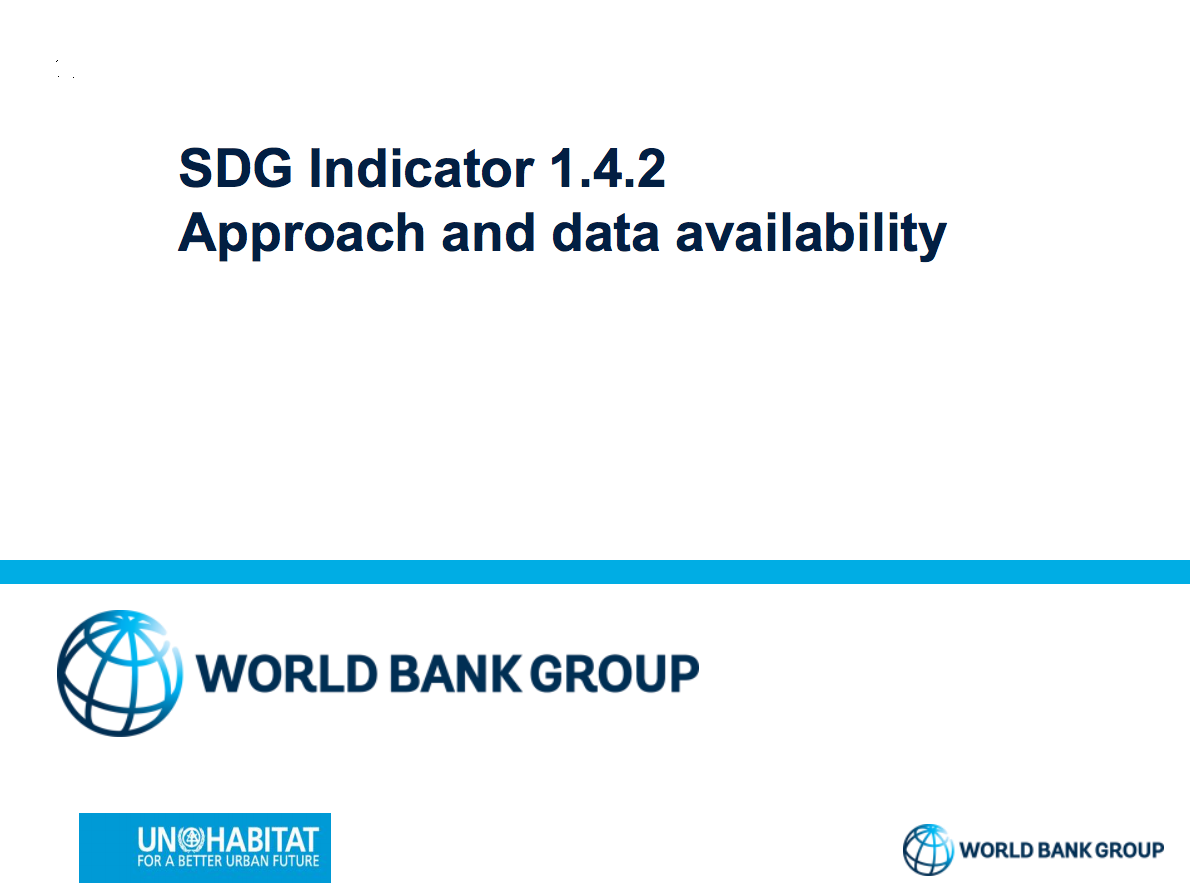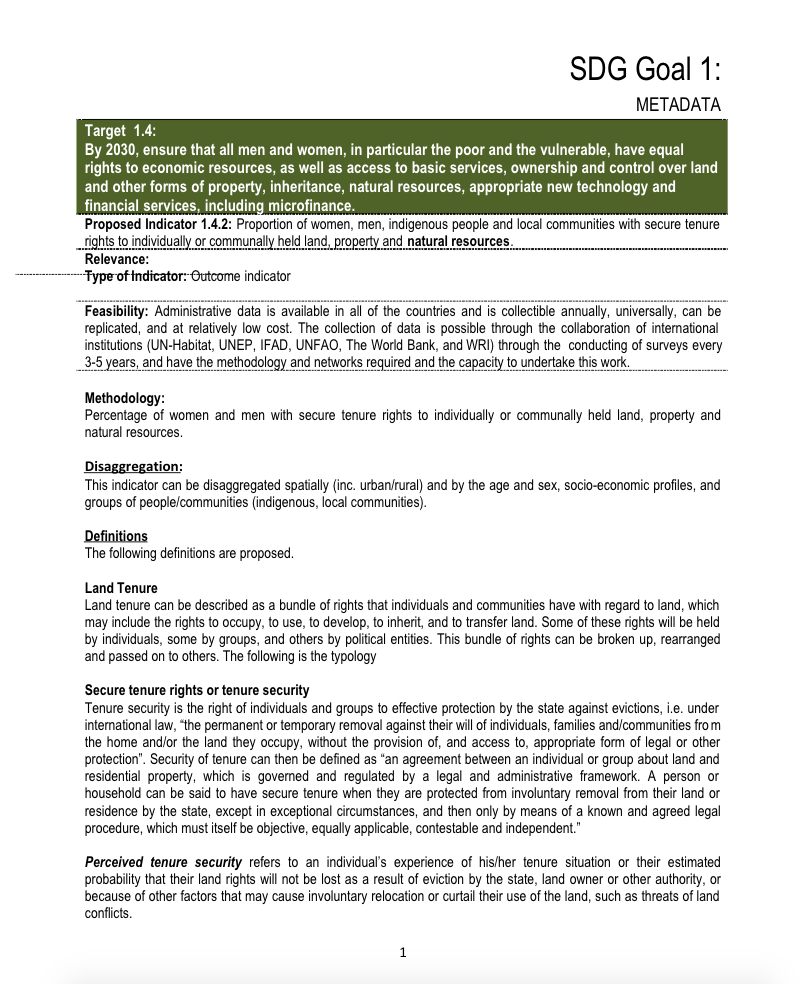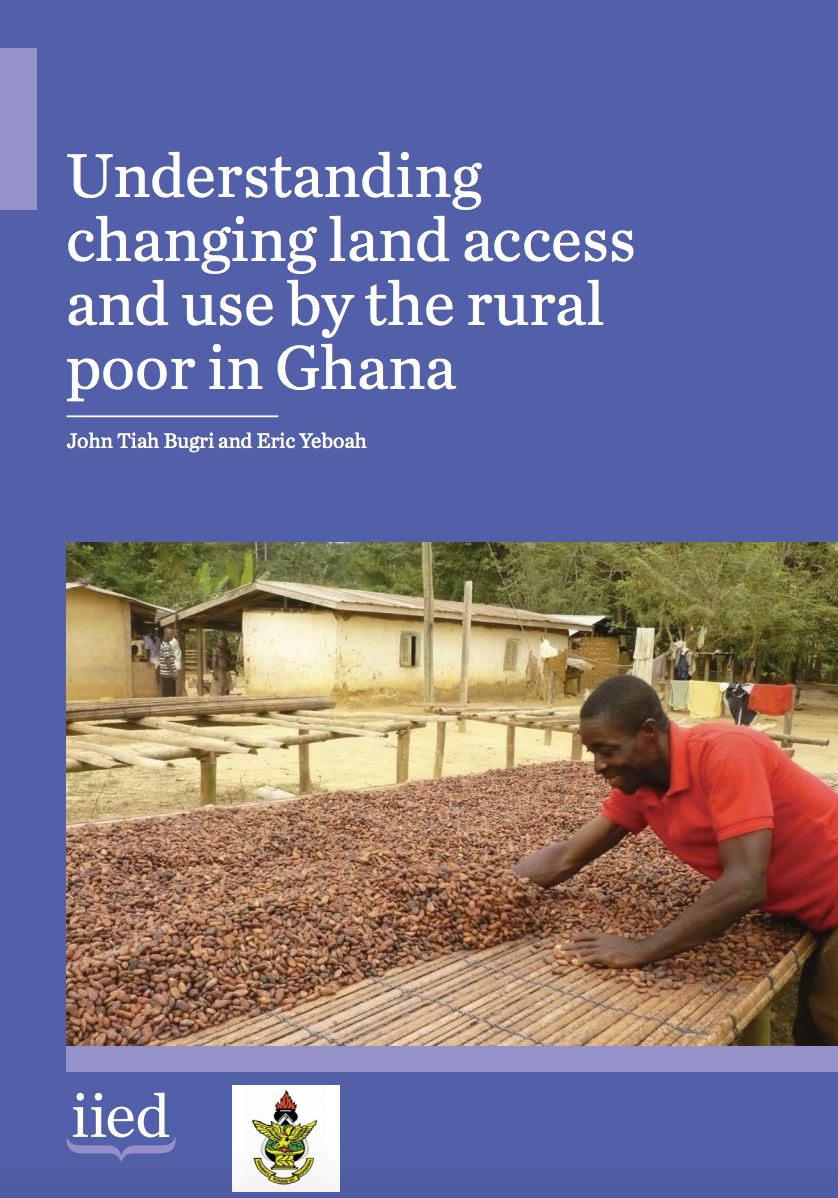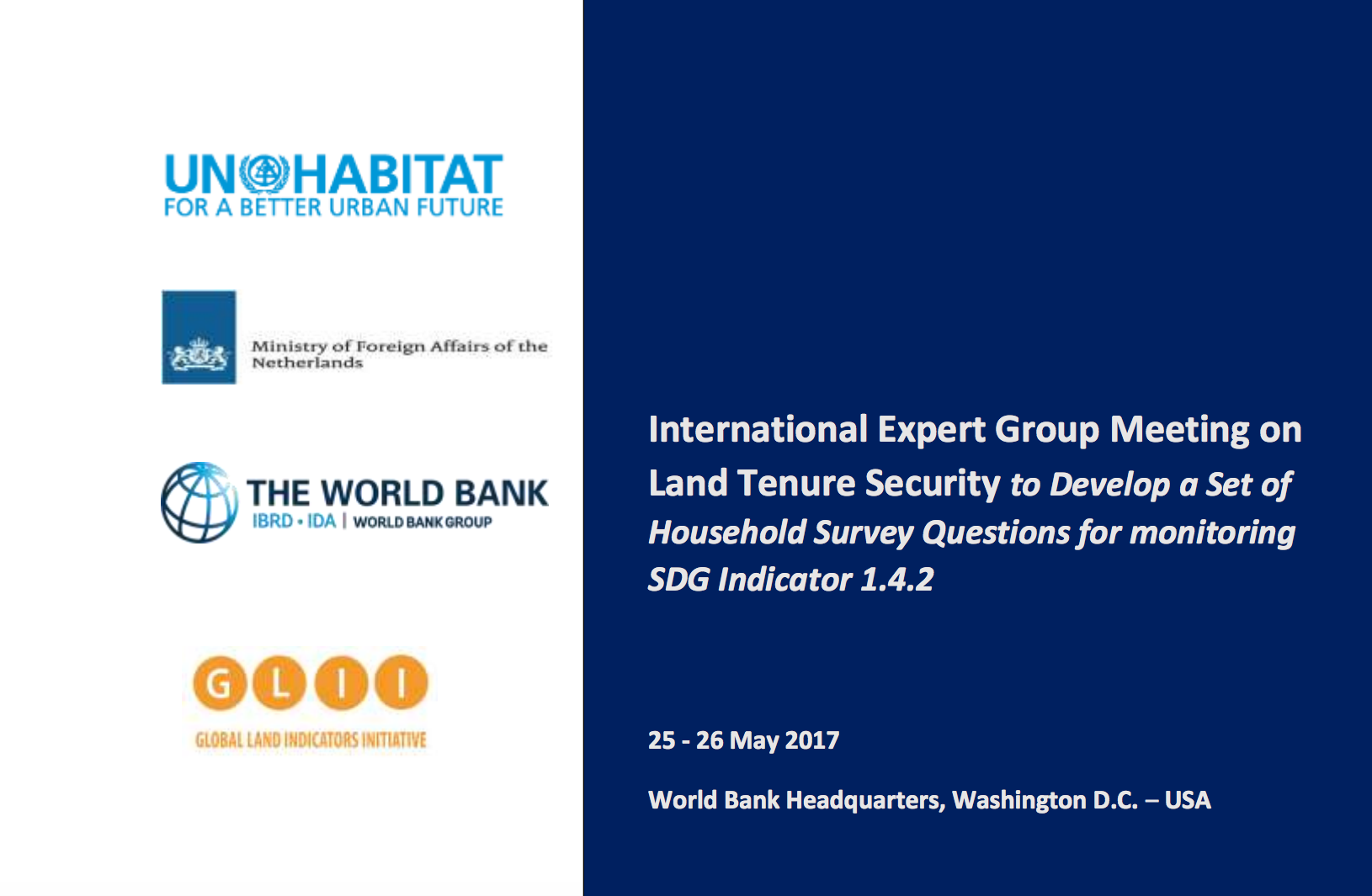Point of adoption
The Voluntary Guidelines on the Responsible Governance of Tenure of Land, Fisheries and Forests in the Context of National Food Security is the first global exhaustive tool on the tenure of land and natural resources developed through an open inter-governmental process with the full and effective participation of a vast array of relevant actors. In such document, internationally accepted principles and norms were established to define responsible practices for the use and control of land, fisheries and forests.
Conflict and mediation in high altitude rangeland property rights in Bhutan
Semi-nomadic yak herders of Bhutan depend on high altitude rangelands and yaks for their livelihoods. Conflicts over high altitude rangelands among herders can lead to sub-optimal management with negative impacts on the environment, livelihoods and socio-economic well-being of semi-nomadic yak herders.
Pastoral property rights in Central Asia
This paper examines the roles of the state, international organisations and the public in pastoral land reform in the Central Asian republics and Mongolia. In recent years new legislation has been passed in most of these countries, often driven by environmental concerns. In the development of these laws, international organisations tend to promote common property regimes, whilst governments usually emphasise individual security of tenure, each using environmental arguments taken from quite different bodies of theory.
Platform Policy Brief: Renewed commitment on Indicator 1.4.2 for achieving global land tenure security in the SDGs
The Global Donor Working Group on Land releases this policy brief to reiterate its commitment on the SDG indicator 1.4.2 for achieving global land tenure security. The policy brief clarifies the status of indicator 1.4.2 towards its implementation by countries, as well as informs how the Global Donor Working Group on Land is supporting the custodian agencies for this indicator (UN-Habitat and WB) to have it re-classified by the Inter-Agency Expert Group on SDG Indicators by October 2018.
SDG Indicator 1.4.2: Approach and data availability
Presentation at the LandAc conference in June 2017, by Thea Hilhorst, representative of the World Bank, custodian agency of the development of SDG indicator 1.4.2.
Thea Hilhorst presents the approach to measuring this indicator and the available data that can be used.
Global Land Indicator Initiative Metadata - SDG indicator 1.4.2.
Methodological supporting document for land indicator under SGD Goal 1, target 1.4.2
NATO Report on Food and Water Security in the MENA Region
The NATO Parliamentary Assemblies’ Science and Technology Committee drafted a new report on Food and Water Security in the Middle East and North Africa. The report underlines that pressures on natural resources and connected impacts on food production are factors that contribute to the (in-) security of the MENA region. The document summarizes causes as well as possible technical and governance approaches to improve food and water security in the region. The initiative shows that the role of environmental resources is increasingly taken seriously in the sphere of security policy.
Understanding changing land access and use by the rural poor in Ghana
In Ghana 70 per cent of the population are smallholder farmers who depend on the land for their basic needs. Growing competition for this resource is having significant impacts on rural livelihoods and governance as land changes hands. This study highlights the key drivers of pressure on rural land and their communities, such as population growth, urbanisation and acquisition of land by new actors, including government and business.
International Expert Group Meeting on Land Tenure Security to Develop a Set of Household Survey Questions for Monitoring SDG Indicator 1.4.2
The World Bank Group and UN-Habitat as co-custodians of the SDG Indicator 1.4.2, in collaboration with the Global Land Indicator Initiative (GLII) organized an international Expert Group Meeting (EGM) at the World Bank Headquarters in Washington D.C. from 25 -26 May 2017 in preparation for the reclassification process of the SDG Indicator 1.4.2.
Agri-Parks and Agri-Villages: What is government thinking?
This research report presents an assessment of local awareness in the Amajuba District of government's proposed Agri-Park and Agri-Village programmes. It also considers secondary data on international examples of Agri-Parks and Agri-Villages.

